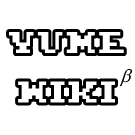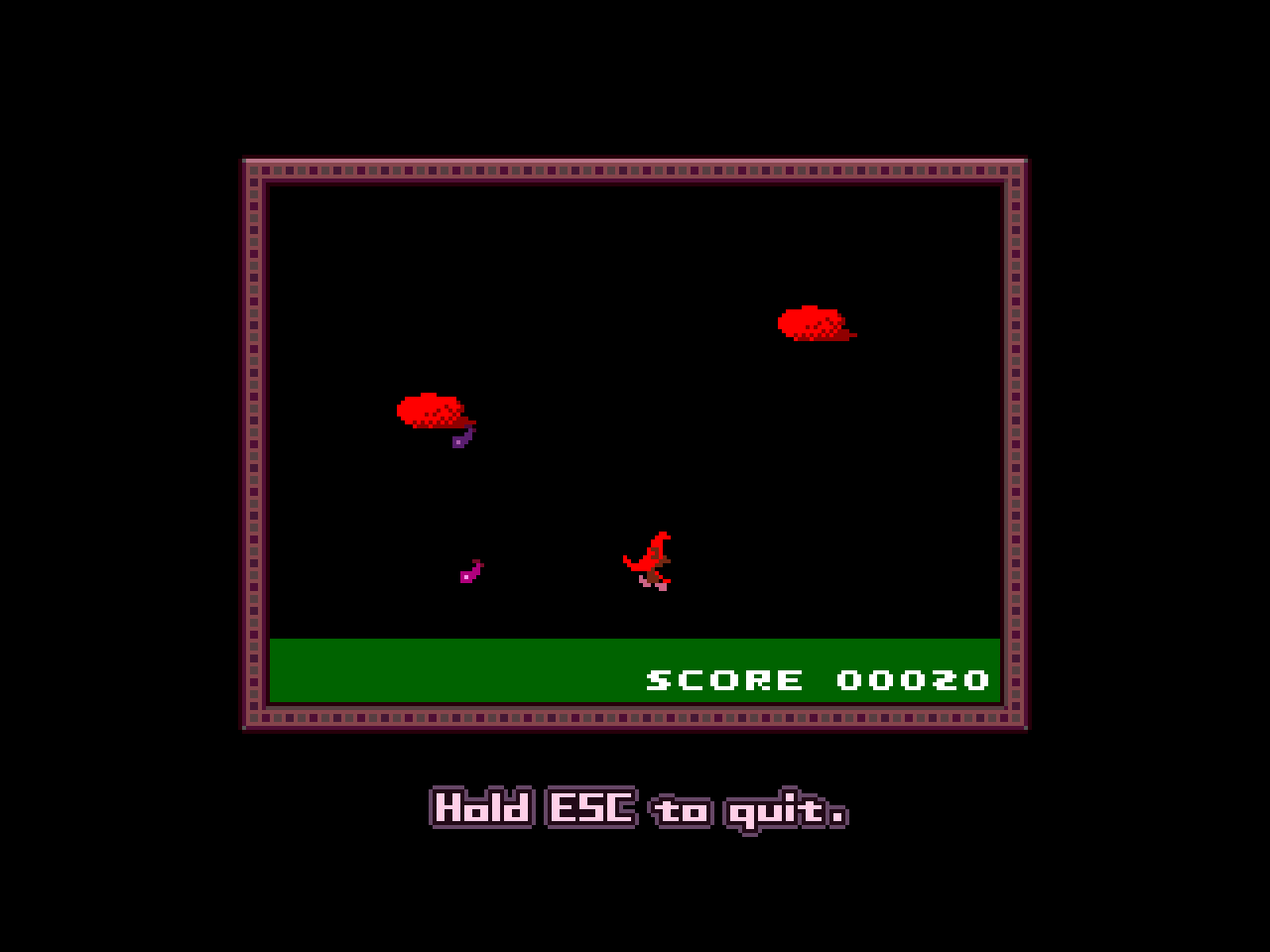>TenhGrey (Changed instances of 'nasu' to 'eggplant' when referring to eggplants as opposed to the the game itself. Added infobox for Nasu character, didn't think it needed its own page. Add Characters category) |
|||
| Line 18: | Line 18: | ||
Nasu is a very simple arcade game in which the object is to catch a falling eggplant in the player character's mouth. Failing to catch an eggplant will result in losing the game. Each eggplant is worth 10 points, and occasionally a bonus eggplant will bounce from the left side of the screen to the right and is worth 300, and does not result in a game over if not caught. It is also possible to get 1,000 bonus points; this is achieved by catching a normal and bonus eggplant at the same time. | Nasu is a very simple arcade game in which the object is to catch a falling eggplant in the player character's mouth. Failing to catch an eggplant will result in losing the game. Each eggplant is worth 10 points, and occasionally a bonus eggplant will bounce from the left side of the screen to the right and is worth 300, and does not result in a game over if not caught. It is also possible to get 1,000 bonus points; this is achieved by catching a normal and bonus eggplant at the same time. | ||
== | ==Easter Eggs== | ||
By performing a button combination nearly identical to the Konami Code (left, left, right, right, up, down, up, down) in Nasu's title screen, the player character's head is replaced with an eggplant. Doing this seems to greatly improve the chances of a bonus eggplant. While this is likely a reference to the Konami Code, it may also refer to Kid Icarus for the Famicom, where some enemies transformed the player into an eggplant with legs. | By performing a button combination nearly identical to the Konami Code (left, left, right, right, up, down, up, down) in Nasu's title screen, the player character's head is replaced with an eggplant. Doing this seems to greatly improve the chances of a bonus eggplant. While this is likely a reference to the Konami Code, it may also refer to Kid Icarus for the Famicom, where some enemies transformed the player into an eggplant with legs. | ||
Revision as of 03:09, 29 June 2011
NASU is the horribly depressing famicom game found in Madotsuki's Room. The graphics and sound highly resemble authentic Famicom/NES hardware capabilities, although the game itself is fictional. It is possible that Nasu wasn't the only game intended to be inlcuded in Yume Nikki, since it's a member (yet the only one) of the Famicom menu.
It is named after the Japanese word for eggplant (a.k.a. aubergine), a type of fruit native to Asia.
Gameplay
Template:Infobox Nasu is a very simple arcade game in which the object is to catch a falling eggplant in the player character's mouth. Failing to catch an eggplant will result in losing the game. Each eggplant is worth 10 points, and occasionally a bonus eggplant will bounce from the left side of the screen to the right and is worth 300, and does not result in a game over if not caught. It is also possible to get 1,000 bonus points; this is achieved by catching a normal and bonus eggplant at the same time.
Easter Eggs
By performing a button combination nearly identical to the Konami Code (left, left, right, right, up, down, up, down) in Nasu's title screen, the player character's head is replaced with an eggplant. Doing this seems to greatly improve the chances of a bonus eggplant. While this is likely a reference to the Konami Code, it may also refer to Kid Icarus for the Famicom, where some enemies transformed the player into an eggplant with legs.
Fan Speculation
Toriningen
The player character of Nasu highly resembles the Toriningen of Madotsuki's dreams. With its depressing nature, the game could be influencing her dreams negatively in this manner and many others.
Time Period
A Famicom is a rather outdated console by today's standards, but it isn't unusual for someone to own and enjoy using one. However, other things in Madotsuki's room seem a bit outdated, such as the TV itself. This may indicate that the events of Yume Nikki take place sometime in the recent past. Alternately; it could be that because she never leaves her home these items represent the time period when she changed and stayed indoors, hence nothing is updated or new.

